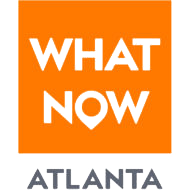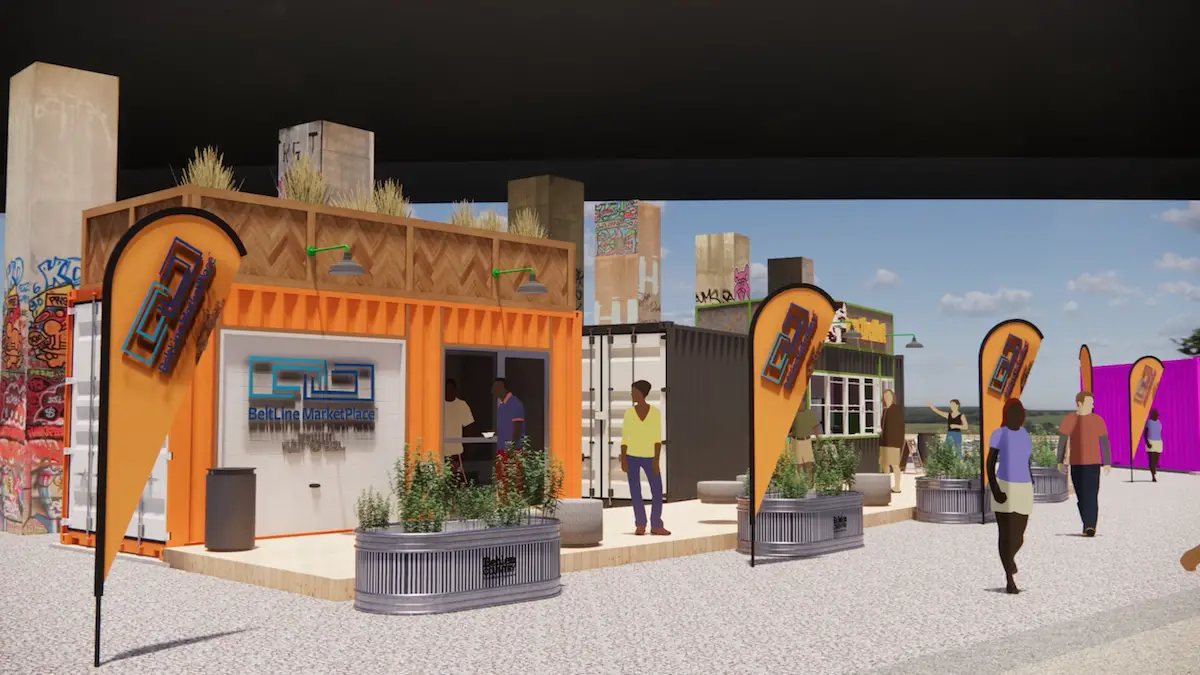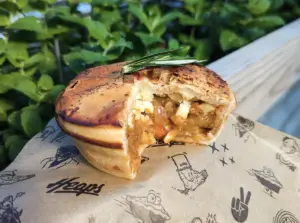Atlanta BeltLine, Inc. (ABI) and The Village Market (TVM) have chosen five local businesses to be a part of the inaugural BeltLine MarketPlace collaboration, the organization Tuesday announced — with pone spot remains. The pilot program includes minority business enterprises whose owners include Black men, women, veterans, families, and members of the LGBTQ+ community.
Sign up now to get our Daily Breaking News Alerts
“From a vegan burger eatery to a Grady Baby brand apparel store, the selection of local businesses represents the heart and soul of Atlanta entrepreneurialism, with some aspiring to a first brick-and-mortar location and others aiming to become national brands,” according to a press release. Four are food companies and two are soft-goods companies.
The local businesses are part of ABI’s pilot small business incubator program, announced in April, as a catalyst to provide new, affordable commercial opportunities along the multi-use trail. The businesses will be located in two commercial nodes on the Eastside and Westside Trails, located in custom-made containers that are being installed for this purpose.
“One of the many reasons why Atlanta rises above the rest is that this is a city of possibilities — and the BeltLine MarketPlace pilot program encapsulates that reputation,” said Mayor Andre Dickens. “Building a small business is hard work, and I am pleased the City and our partners are able to provide this kind of support for the entrepreneurs who are truly the heart of Atlanta’s economy.”
The incubator is supported by a $750,000 grant from the Kendeda Fund, in collaboration with the Atlanta BeltLine Partnership.
“One of the greatest barriers for new business entrepreneurs is access to commercially affordable space. This is especially true for Minority Business Enterprises and entrepreneurs, who face disproportionate challenges when starting and sustaining businesses,” Clyde Higgs, President and CEO of Atlanta BeltLine, Inc., said. “The launch of BeltLine MarketPlace’s custom-made containers are removing that barrier and upholding our commitment to communities while ensuring more equitable access to opportunities along the BeltLine, starting with six Minority Business Enterprises in this first year.”
The program received 217 applications from local businesses received over two weeks. Ultimately, six will be selected for the pilot season, which will run from July through November 2022.
The pilot participants will each have their own artistic, architecturally-designed shipping container developed by Black-owned architectural design firm Atelier 7. The commercial spaces will give the entrepreneurs direct access to the Atlanta BeltLine’s roughly two million annual visitors. They will be joined by a curated collection of food trucks to create a full shopping experience.
EASTSIDE TRAIL BELTLINE MARKETPLACE: Located under the Freedom Parkway Bridge at 830 Willoughby Way NE, Atlanta, GA 30312
Cococakes by Coco: In business for six years, Owner Kina Morgan will use the BeltLine MarketPlace location to “test our new concept of ‘build a chunk,’ which will allow a customer to select cake and a variety of toppings for a unique dessert experience.” The shop also sells whole cakes and has soft drinks, water, milk and coffee. She currently has one location.
Good As Burgers: Cornoy Watkins’ goal is to build a national chain like McDonald’s — for vegans. “We create a fun and tasty way to make the vegan lifestyle mainstream, saving the lives of hundreds of animals and reducing damage to our environment, one Good As Burger at a time,” Watkins said. In business for two years, the eatery offers all plant-based burgers plus sides and desserts.
Grady Baby Company & Apparel: Online apparel company founder Alexander Albritton says Grady Babies have changed the world, secured civil rights for all and achieved educational success. (“Grady baby” is a term for people born at Atlanta’s Grady Hospital.) From music moguls and superstars to world class athletes — many started as Grady Babies. “It’s our mission to spotlight and celebrate that greatness,” Watkins said. “The Grady Baby Brand represents the soul of Atlanta, the heartbeat of a culture, and you don’t have to be born at Grady to wear it.” Known for the classic “We Full – Atlanta” t-shirt, the brand sells tees, hoodies, shorts, jogging suit sets and accessories and aims to become a national brand.
WESTSIDE TRAIL BELTLINE MARKETPLACE: Located at 1089 Allene Avenue SW, Atlanta, GA. 30310
Not As Famous Cookie Company: Founded by Ashley Carlton seven years ago, the cookie company now has one location and 12 employees. “We’re a gourmet cookie shop that specializes in scratch made cookies, artisan cookie sandwiches, handcrafted shakes and deep dish cookie skillets. We make a better cookie!” Ashley hopes to grow the company into a national brand.
PinkPothos: Lakeisha Jones wants to add visual interest to people’s space, one plant at a time. “I sell custom-made fabric plant pots.” Lakeisha’s looking to expand into her first retail location selling plants and accessories. Currently only on the web, this will be her first physical location.
“Black-owned businesses experience greater barriers to entrepreneurial success than other minority- or white-owned businesses,” according to Tuesday’s announcement. In the process of applying for the BeltLine MarketPlace program, the BeltLine surveyed the Black small business owners to identify what some of those pain points are. “According to the applicants, the most common roadblocks are access to capital and resources; access to customers; and rising rental rates on commercial space.”
Of BeltLine MarketPlace’s 217 applicants, 64 percent, or 138, said access to loans or investment capital is a barrier to securing a physical retail location and 55 percent said monthly rent was too expensive for their current revenue and cash flow. Other barriers they cited include lack of available commercial space in the neighborhoods where they would like to rent space and not having enough capital for a rental deposit.
The program applicants represented a diverse cross section of business owners:
- 68 percent of applicants’ businesses are helmed by Black women
- 44 percent are family-owned
- 11 percent had Black LGBT owners
- 97 percent have the capacity to operate a business seven days a week for at least five hours a day, given the resources and opportunity.
Nearly half of the applicants are retail or product businesses with 42 percent being food and beverage. Close to half operate their businesses single-handedly. Two-thirds of applicant businesses operate with approximately between $50,000 and $74,000 in annual revenue.
The survey responses of the applicants reflect trends in the region showing lower revenue and fewer employees at Black-owned businesses, on average, compared to other businesses. According to a Prosperity Now report, the average Black-owned business in Atlanta is valued at $58,085, compared to $658,264 for white-owned businesses. This report cites that only four percent of Black-owned businesses in Atlanta have one or more paid employees. The latest Annual Business Survey data from U.S. Census Bureau shows that Black-owned businesses make up less than seven percent of all employer firms in metro Atlanta.
BeltLine MarketPlace anticipates growing in scope to include businesses of all backgrounds and more locations around the Atlanta BeltLine loop, taking into account lessons learned from the pilot. Dedicated funding from the Kendeda Fund will enable scaling as part of the grant.
As the program is scaled, it will become an opportunity for entrepreneurs to gain immediate access to BeltLine foot traffic to launch a new product; for existing businesses to test new products and services; for southside and westside businesses to gain new markets and awareness on the eastside for their brands; and for residents on the southside and westside to have access to new amenities in their communities.
Summer 2022 will also mark the launch of Atlanta BeltLine’s Small Business Solutions Office, which will deliver tailored solutions to local and Minority Business Enterprises seeking to expand across the 22-mile BeltLine corridor.
[Editor’s note: Dope Coffee Company LLC was originally announced as participating but has bowed out from consideration. This article has been updated accordingly.]







